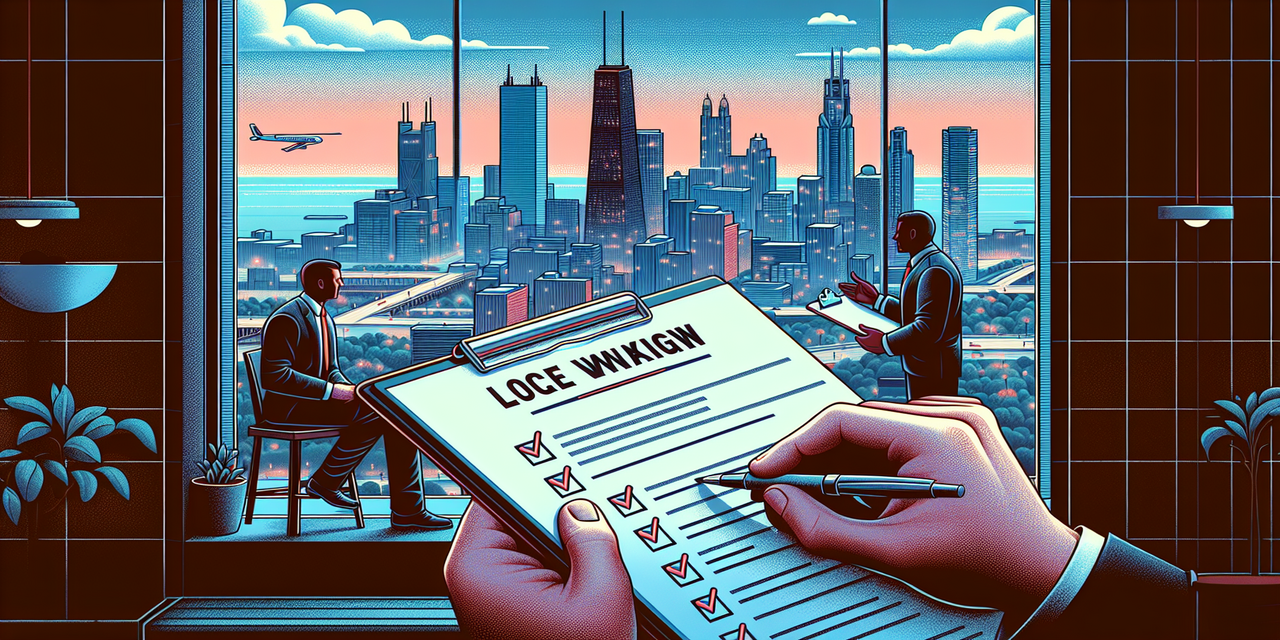Hiring Server in Chicago: Local Wage Laws and Hiring Checklist: Key Takeaways
- As of July 1, 2025, Chicago’s minimum wage is $16.60/hour for non-tipped employees and $12.62/hour for tipped employees.
- The tipped minimum wage in Chicago will be phased out by July 1, 2028, increasing by 8% annually starting July 1, 2024.
- Employers must follow a comprehensive hiring checklist including wage compliance, Form I-9 verification, training, and labor law adherence.
Hiring servers in Chicago requires careful compliance with dynamic wage laws and a thorough hiring process.
This guide covers local wage laws and the essential steps in the server hiring checklist.
1. Understanding Local Wage Laws for Servers in Chicago
Chicago’s minimum wage laws differ depending on whether employees are tipped or non-tipped.
As of July 1, 2025:
- Non-tipped workers must be paid at least $16.60 per hour.
- Tipped workers, including servers, have a minimum wage of $12.62 per hour, lower due to anticipated tip income.
However, an important change is underway.
The Chicago City Council approved phasing out the subminimum tipped wage by July 1, 2028.
Starting July 1, 2024, the tipped wage will increase by 8% each year until it equals the standard minimum wage.
This phase-out means employers must plan wage budgets accordingly and anticipate paying a full minimum wage rate to tipped servers by 2028.
For broader context, review this minimum wage for restaurant servers resource.
2. Key Requirements in the Server Hiring Checklist for Chicago
To hire servers successfully and legally in Chicago, employers need to follow a detailed hiring checklist that ensures compliance with wage laws and operational readiness.
Job Description and Wage Compliance
Create a clear job description outlining required responsibilities, skills, and expectations.
Verify that offered wages meet or exceed Chicago’s applicable minimum wage rates for tipped or non-tipped servers.
Employment Eligibility and Background Checks
Complete Form I-9 for each new hire to verify employment authorization in the U.S.
Conduct background checks subject to Illinois state laws and policies to ensure suitability.
Employee Handbook and Training
Provide servers with an employee handbook containing policies on workplace conduct, dress code, grievance procedures, and safety protocols.
Offer onboarding training covering service standards, safety rules, and operation of point-of-sale systems.
For consistent onboarding, use this server training manual template.
Tax Documents and Labor Law Compliance
Collect W-4 tax withholding forms to document federal income tax settings.
Ensure scheduling follows Illinois labor laws about working hours, breaks, and overtime pay.
Maintain OSHA health and safety compliance to protect employees and reduce liability risks.
Record-Keeping and Operational Logistics
Keep accurate records of server work hours, wages paid, and tip income.
Monitor wage payments regularly to prevent underpayment or wage disputes.
To manage tips fairly and transparently, try this tip pooling spreadsheet template.
3. Planning for the Future of Tipped Minimum Wages in Chicago
The gradual elimination of the tipped minimum wage means restaurant owners and employers must prepare for increased labor costs.
Effective wage planning and budgeting are critical to stay compliant as the tipped wage increments annually by 8%, phasing out in 2028.
This transition impacts payroll systems, staffing budgets, and pricing strategies.
When recruiting, learn how to post jobs for tipped employees.
4. Best Practices for Successful Server Hiring in Chicago
Successful server recruitment goes beyond legal compliance; fostering a positive working environment benefits employee retention and customer satisfaction.
- Develop thorough job postings that clearly set expectations.
- Ensure timely and transparent communication about wages and benefits.
- Provide regular training to maintain high service standards.
- Implement efficient scheduling practices that respect labor laws and employee needs.
When interviewing candidates, use these server interview questions to structure your process.
5. Useful Official Resources for Chicago Employers
Employers can consult these official sources to stay updated with wage laws and best hiring practices:
- City of Chicago Minimum Wage Information
- Cook County Minimum Wage Ordinance and Regulations
- U.S. Department of Labor Wage and Hour Division
Hiring Server in Chicago: Local Wage Laws and Hiring Checklist: Conclusion
Hiring servers in Chicago demands attention to evolving wage standards and a comprehensive hiring process.
By understanding the current minimum wage rates, preparing for the elimination of the tipped wage, and following a structured hiring checklist, employers can maintain compliance while creating a positive workplace.
Leveraging official resources and adopting best practices ensures a smooth hiring experience that benefits both employees and restaurants.
If you also hire front-of-house roles, see the waitress job description for parallel duties.
For budgeting and pay bands, check the server salary data.


.png)

.png)
.jpg)